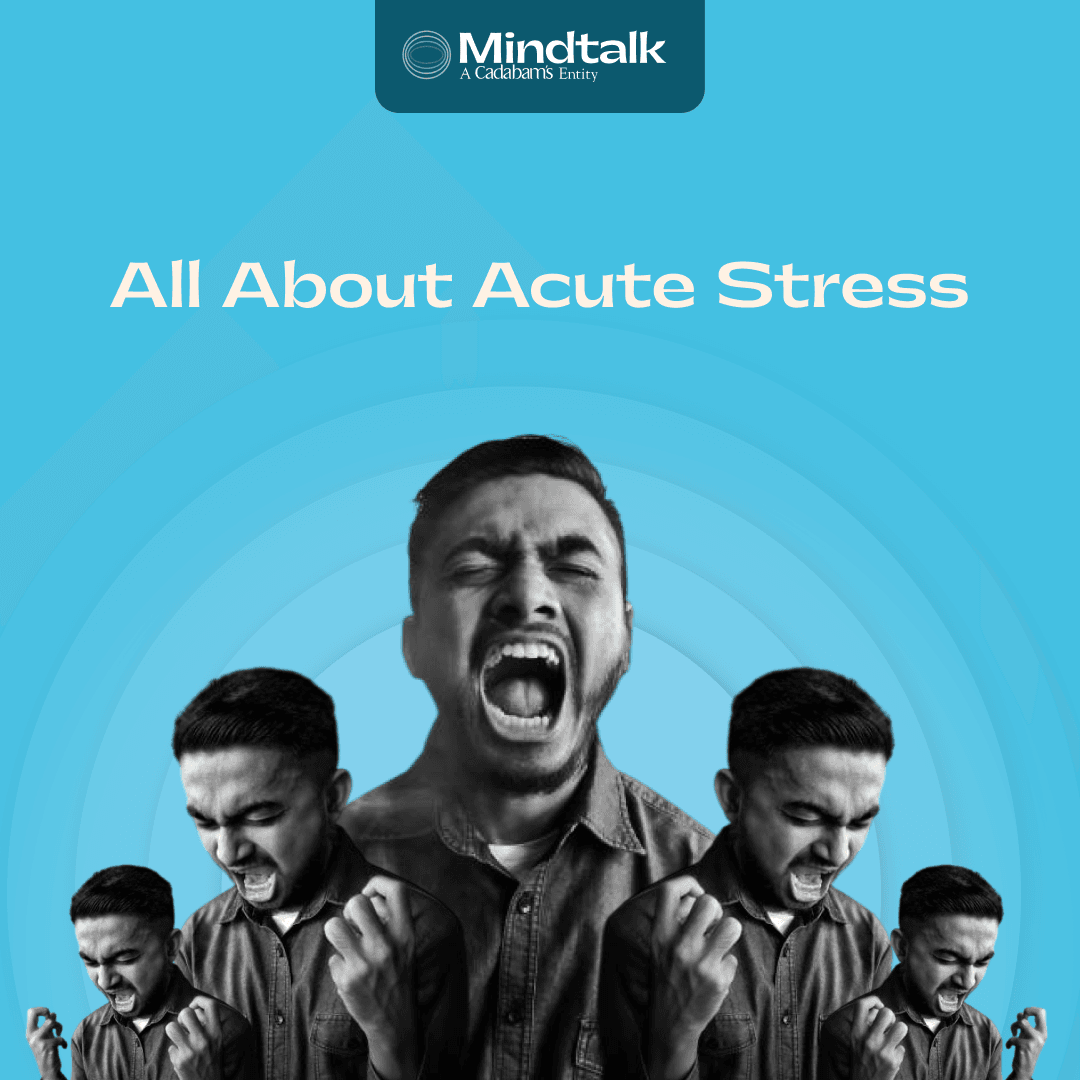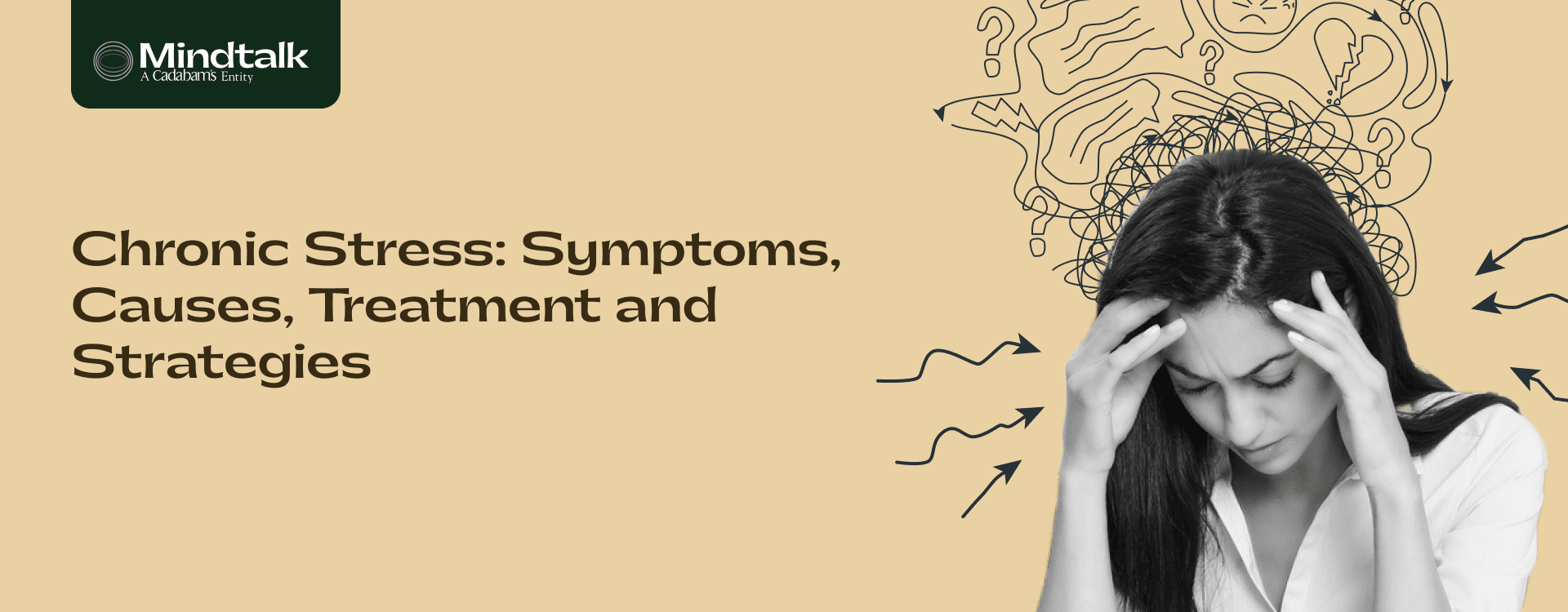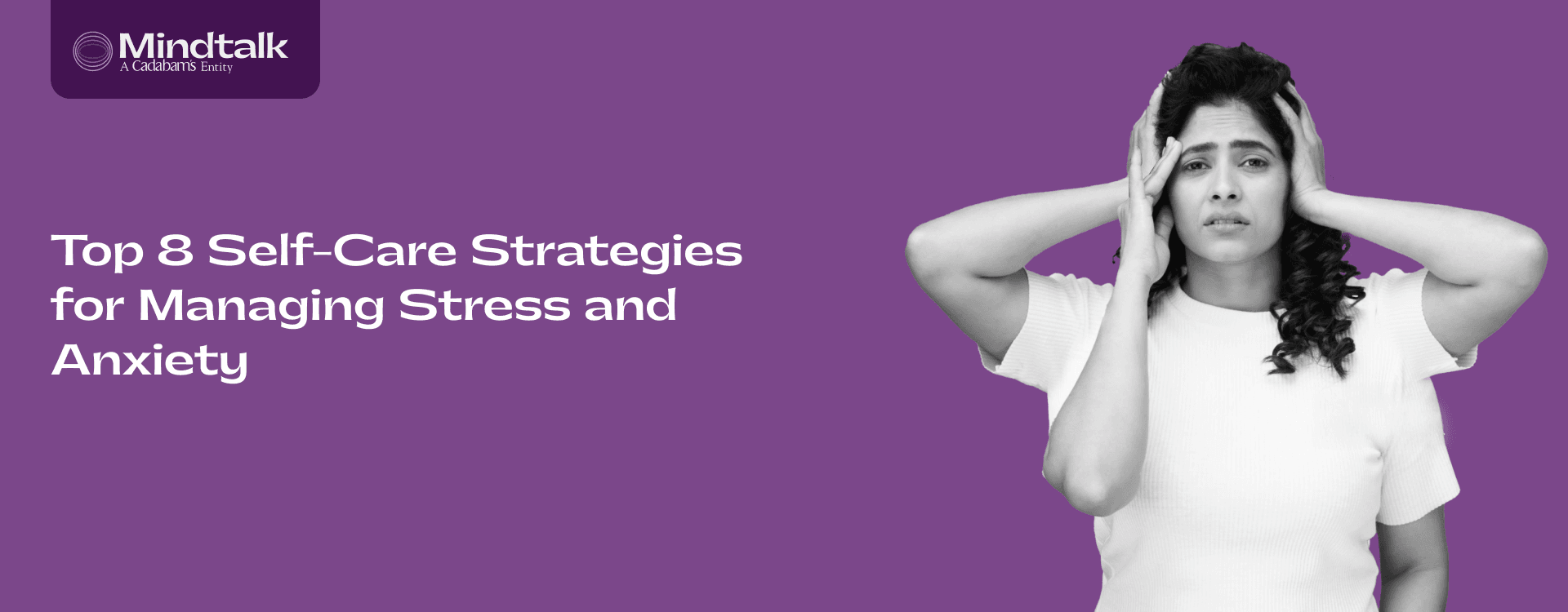Understanding Acute Stress Disorder: Symptoms, Causes And Relief

Have you ever had a sudden, strong terror or shock that lasted long after the event? Do flashbacks, nightmares, and avoidance habits interfere with your regular life? If so, you may be suffering from Acute Stress Disorder (ASD), a disorder that is frequently brought on by stressful experiences.
This blog goes into the realm of ASD, including symptoms, causes, and, most significantly, treatment possibilities. We will also provide you with coping strategies and tools to help you navigate your path to healing and recovery.
What Is Acute Stress?
Acute stress is the body's normal reaction to an unexpected, overpowering, or frightening incident. The "fight-or-flight" response is a short-term reaction that assists you in dealing with an immediate threat. This reaction is defined by physiological and psychological changes that prepare you to face or avoid the threat.
Causes Of Acute Stress
While ordinary inconveniences like deadlines or disputes might set it off, ASD is caused by more acute, traumatic experiences. Here are a few common causes:
- Accidents: Witnessing violent incidents, natural disasters, or car wrecks may all cause tremendous anxiety and powerlessness.
- Physical or sexual assault: These transgressions leave lasting emotional scars and instill dread and worry.
- Sudden losses, such as the death of a loved one or a job loss, can be upsetting and cause emotional anguish.
- Medical emergencies: Severe sickness or witnessing a medical emergency can be extremely stressful and cause ASD.
- conflict and combat: The continual threat and dread that come with conflict can create long-term psychological harm.
Symptoms Of Acute Stress Disorder
Acute stress disorder (ASD) is not just "feeling stressed." It's a cluster of strong symptoms following a stressful experience that lasts 3 days to a month.
- Intrusive recollections occur when you clearly recall an incident and feel as if it is occurring again.
- Nightmares: Sleep is disrupted by terrible nightmares about the trauma.
- Flashbacks are feelings of being taken back to the incident and experiencing overwhelming images, sounds, and emotions.
- Intense emotional discomfort is defined as overwhelming fear, rage, grief, or separation from one's environment.
- Avoidance is defined as avoiding people, places, or reminders of the incident, therefore restricting everyday activities.
- Negative thoughts include feeling numb, distant, and unable to experience happy feelings.
- Hyperarousal is defined as feeling continually on edge, being easily startled, and having difficulties focusing or sleeping.
What Distinguishes Acute Stress Disorder From Post-traumatic Stress Disorder (PTSD)?
While both result from trauma, ASD and PTSD vary in duration and intensity:
- ASD symptoms span 3 days to 1 month, but PTSD lasts more than a month and can continue for years.
- Intensity: ASD symptoms are often less severe than PTSD, and have a lower impact on everyday living.
- Onset: ASD occurs soon following the incident, whereas PTSD may appear weeks or even months later.
However, both require expert care to recover. If ASD symptoms persist or worsen, they may progress to PTSD. Early intervention and assistance are critical for both diseases.
When Does A Response To Acute Stress Turn Into A Mental Health Concern?
When a typical, transient reaction to acute stress shifts into a disruptive and long-lasting influence, it becomes a mental health risk. Here are a few crucial signs:
- Symptoms last more than a month: If powerful emotions, flashbacks, or avoidance behaviors linger for more than a month, ASD may be the cause.
- Daily living is greatly affected. If stress interferes with your career, relationships, or capacity to function normally, you should be concerned.
- Coping techniques fail: If you are unable to handle the symptoms on your own and they are causing severe discomfort, finding professional assistance is critical.
Treatment Options For Acute Stress
If you're struggling with Acute Stress Disorder (ASD), various treatment options can help you heal and reclaim your well-being. Here are some key approaches:
Psychotherapy (Talk Therapy) For Acute Stress Disorder
This includes discussing your trauma-related thoughts, feelings, and experiences with a therapist. It allows you to better understand your feelings, establish appropriate coping methods, and process the incident in a secure environment.
Cognitive Behavioural Therapy (CBT) For Acute Stress Disorder
A special sort of talk therapy focuses on recognizing and modifying harmful thinking patterns and actions that cause discomfort. It teaches you how to manage anxiety, flashbacks, and avoidance behaviors.
Psychologist For Acute Stress Disorder
A mental health specialist who specializes in identifying and treating a variety of mental health issues, including ASD. They can give psychotherapy, pharmaceutical recommendations, and ongoing support during the rehabilitation process.
Prevention Measures For Acute Stress Disorder
While trauma cannot be foreseen, the effects of Acute Stress Disorder (ASD) can be reduced. Explore easy yet effective techniques to strengthen your resilience, confront unexpected circumstances with equanimity, and reduce the risk of ASD.
Emotional Support For Acute Stress Disorder
Developing a solid support network is critical. Surround yourself with loved ones who will provide you with a safe environment to express your emotions, affirm your experiences, and listen without judgment. Joining a support group for people with ASD might help you connect with others who understand your problems.
Personal Safety For Acute Stress Disorder
Take actions to protect your physical and mental safety might help you feel less anxious and heal faster. This might include minimizing your exposure to trauma-related reminders, practicing relaxation techniques such as deep breathing, or creating a safe area in your home where you can feel calm and in control.
Follow Up With The Healthcare Team For Acute Stress Disorder
Seeking professional assistance early on is critical. Your healthcare team can give an accurate diagnosis, provide individualized treatment programs, and track your progress. Regular follow-up appointments keep you on track and address any new issues as soon as they arise. Remember that early intervention greatly improves recovery results.
Empowering Yourself Against Acute Stress Disorder With Mindtalk
Mindtalk by Cadabams offers a program that involves a unique approach to tackling Acute Stress Disorder (ASD). This multi-pronged approach equips you with tools to navigate difficult emotions, cope with triggers, and regain control over your well-being. We believe in empowering you to become an active participant in your healing journey, providing valuable tools and techniques to overcome the challenges of ASD and build lasting resilience.
Suggested Topics
Similar Posts












